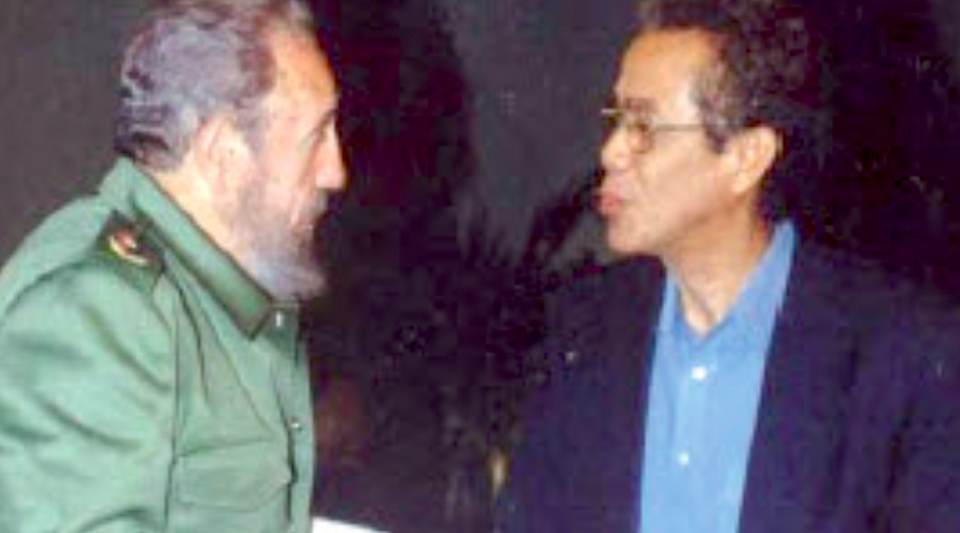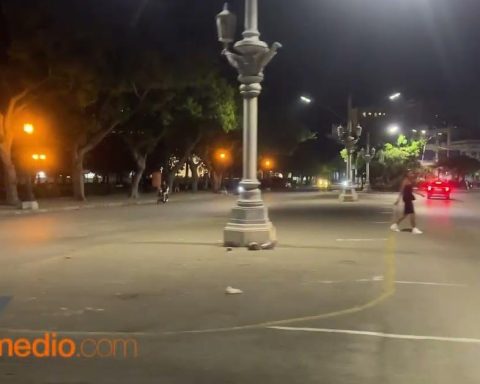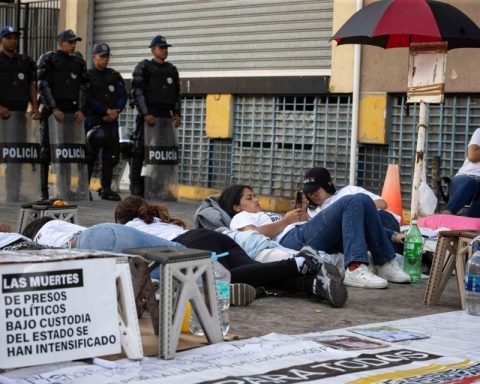The Cuban writer, journalist and editor Eduardo Heras León, National Literature Award winner in 2014, died this Thursday in Havana at the age of 82. Founder of the Onelio Jorge Cardoso Literary Training Center, he was one of the intellectuals parameterized during the so-called Gray Quinquenio, despite which he always defended Fidel Castro’s cultural policy at all costs.
Heras, known from a young age as El Chino, was born in the Cuban capital in 1940 and worked different jobs until he entered the Normal School of Teachers in Havana in 1958, where he participated in various conspiracies against Fulgencio Batista organized by the Movimiento 26. of July.
In 1961 he joined the militias that fought in the Bay of Pigs as a volunteer artilleryman, an event from which he wrote the book of stories The war had six names (David Award, 1968). After the stress of the first years of the Revolution, Heras began to study journalism at the University of Havana and continued writing short stories, later collected in footsteps in the grass (Mention of Casa de las Américas, 1970), which received the disapproval of the magazine Bearded Caimanwhere he was accused of being a “counterrevolutionary” in the article Another mention of The Stepsby Roberto Diaz.
Behind the exemplary arrest of the poet Heberto Padilla by State Security in 1971, the regime began a witch hunt against all authors and works that deviated from ideological orthodoxy. The National Council of Culture, directed by Commissioner Luis Pavón, organized the dismissal of numerous intellectuals, including Heras himself, whose stories showed the “human side” and little heroism of the Castro guerrillas.
In an interview in a confessional tone that he offered to the singer-songwriter Amaury Pérez, Heras tried to mitigate the story of his despair during the Quinquenio Gris
Decades later, in an interview in a confessional tone that he offered to the singer-songwriter Amaury Pérez, Heras tried to mitigate the story of his despair during the Quinquenio Gris, when he was expelled from the journalism career and sent to work in a steel foundry.
An old colleague of Heras at the School of Journalism in Havana, evoking his expulsion, told 14ymedio that, during the summer of 1971, the secretary of the Union of Young Communists, Arsenio Rogríguez, went through the classrooms explaining that the writer “was no longer the candidate of the School for the elections of the University Student Federation (FEU), that he had ceased to be a member of the Union of Young Communists (UJC) and that he would no longer be an assistant professor. In addition, he had been expelled for being a counterrevolutionary”. Given the disagreement of several students, Rodríguez explained that the announcement was merely “information and was not subject to discussion.”
In those years he came to think about suicide -using the revolver that Fidel Castro had given him after his time as a militiaman– and he encrypted his experience in the volume Steelwhich was not published until 1977.
After a partial rehabilitation in 1976, Heras officiated as director of the Narrative section of the recently founded publishing house Letras Cubanas, in addition to serving as director of the Editorial Fund of Casa de las Américas and vice president of the Union of Writers and Artists of Cuba (Uneac ).
His definitive approach to Castro occurred during the Special Period, leading one of the television courses of the University for All project. There, Heras directed a course on narrative techniques that later led to the creation of the Onelio Jorge Cardoso Literary Training Center, in which numerous narrators from the Island received advice.
Heras directed a course in narrative techniques that later led to the creation of the Onelio Jorge Cardoso Literary Training Center
In 2007 he was involved in another cultural controversy, during the so-called “email war”. During the convalescence of Fidel Castro, who had left the political arena the previous year, and in a climate of political tension, Televisión Cubana broadcast several interviews with the cultural commissioners in charge of the parameterization of 1971. The debate of hundreds of intellectuals and artists who had suffered the harassment of characters such as the radio and television censor Jorge Serguera or Pavón himself set off the alarms of State Security and motivated the transfer of the controversy to an environment more “controlled”.
It was precisely Heras, together with the critic and editor Desiderio Navarro, as well as other “victims” of the Quinquenio Gris such as Fernando Martínez Heredia and Ambrosio Fornet –author of the expression–, those designated to bring the debate towards orthodoxy and wash the hands of the regime , concluding that stage and freeing Fidel Castro from all responsibility.
The lectures offered during those days were gathered in the volume The cultural politics of the revolutionary period: memory and reflection (Criterias Theoretical-Cultural Center), which did not see its second volume published. Heras then said that his entire life, including the episodes he lived through in the 1970s, constituted “testimony of loyalty” to the Revolution and to Fidel Castro, of which he was proud.
In the last two decades of his life, Heras obtained numerous distinctions and medals awarded by the Cuban Government, in addition to the National Edition Award, in 2001, and the Literature Award, in 2014.
________________________
Collaborate with our work:
The team of 14ymedio He is committed to doing serious journalism that reflects the reality of deep Cuba. Thank you for accompanying us on this long road. We invite you to continue supporting us, but this time becoming a member of our newspaper. Together we can continue transforming journalism in Cuba.
















